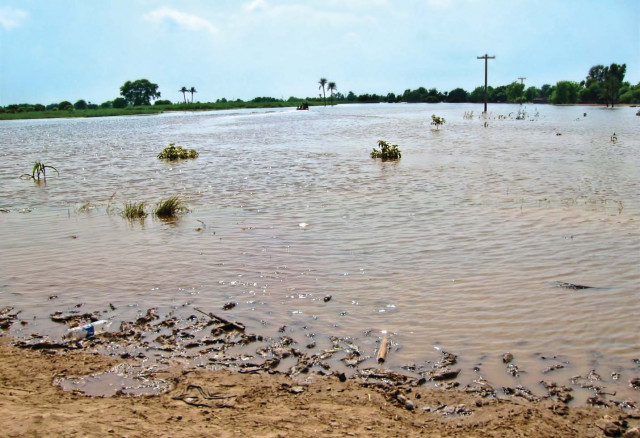The road less travelled is now home to many
At the Alipur Road, it appears like the Red Sea has parted as almost 70 villages are inundated.

Evacuees have amassed on the road, with no shade to protect them from the blazing sun. The temperatures in southern Punjab have added to the misery of flood victims, as the heat, stagnant water and rotten food have led to the spread of gastroenteritis, diarrhoea and skin diseases.
Villages in the region were already poverty-stricken, but the class chasm has widened now. This road serves as a microcosm.
Over 1,000 people have been rescued from the nearby villages. But not everyone has left.
“Up to 200 of our people are still in the village. They can’t leave because they have livestock. They don’t want to be rescued. They need food and water to be delivered to them by boat,” says Syed Nazar Hasan Gilani from Jalanwala village.
Poverty has ensured that hundreds have stayed home, choosing not to escape the floods. While a key reason is that they want to protect their property and livestock, which they have spent their entire lives working for, others can’t afford to travel.
Naseem, in her 30s, says “We are poor people. How can we afford the fare?” The richest people in her village left were the first to leave. They were able to rent vehicles and made their way out as soon as flood warnings came in.
Naseem had no choice but to wait until flood water entered her house and was rescued by the army.
Landowners have turned into refugees on this road.
Gilani had 50 acres of land on which he grew cotton and wheat. “I have incurred at least Rs7.5 million in losses because of the floods,” he says.
He owned this land. Now, he is as involved in the war for food which is ongoing at Alipur Road. Gilani alleges, “Beggars and gypsies come to steal our food.”
Food distribution has been uneven. While the inhabitants of some relief camps have no complaints, and even report a surplus of food, others are still starving.
The future of children in the region looks bleak. They rattle off their names and ages and what class they were enrolled in. They do not know if their schools are still intact, or if they will be able to make it back anytime soon.
But while people rail against the elements - the sun and the water lapping at the road which has flooded the land they used to call home - there are still dreams.
Ten-year-old Fayyaz shyly says he wants to join the army when he’s older.
For now, his life is marked from meal to meal.
Published in The Express Tribune, August 22nd, 2010.



















COMMENTS
Comments are moderated and generally will be posted if they are on-topic and not abusive.
For more information, please see our Comments FAQ